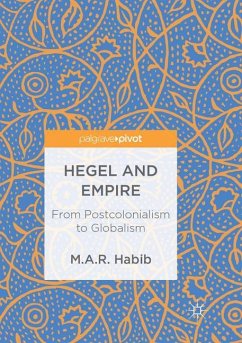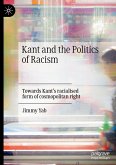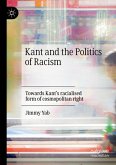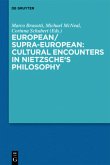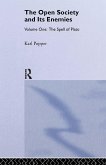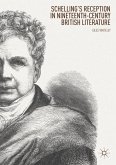This book provides a clear and nuanced appraisal of Hegel's treatment of Africa, India, and Islam, and of the implications of this treatment for postcolonial and global studies. Analyzing Hegel's master-slave dialectic and his views on Africa, India, and Islam, it situates these views not only within Hegel's historical scheme but also within a broader European philosophical context and the debates they have provoked within Hegel scholarship. Each chapter explores various in depth readings of Hegel by postcolonial critics, investigating both the Eurocentric and potentially global nature of his dialectic. Ultimately, the book shows both where of this profoundly influential thinker archetypally embodies certain Eurocentric traits that have characterized modernity and how, ironically, he himself gives us the tools for working towards a more global vision.
Offering a concise introduction not only to an important dimension of Hegel's thought - his orientation towards "empire" - but also to the various issues raised by postcolonial theory and global studies, this book will be of use to philosophers as well as advanced students of literary and cultural theory alike.
Offering a concise introduction not only to an important dimension of Hegel's thought - his orientation towards "empire" - but also to the various issues raised by postcolonial theory and global studies, this book will be of use to philosophers as well as advanced students of literary and cultural theory alike.
"As with racism or sexism, the site of contestation cannot be reduced to the individual but must be considered globally. Habib provides a valuable, concise, and accessible guide to this endeavor. ... I would certainly recommend it as an introduction to the vast field of post-Hegelian modernity to which postcolonial arguments must respond, and as a guide to further reading of the work of the many scholars who have engaged in this endeavor." (Wendy Shaw, New Global Studies, Vol. 13 (3), 2019)
"Hegel and Empire is well organized, clearly written, and thoughtfully reasoned. Together with his thorough command of the history of philosophy, Habib's capacious knowledge of anti- and postcolonial theories and literatures beggars the interdisciplinary imagination. Alongside recent works such as George Ciccariello-Maher's Decolonizing Dialectics , Habib's Hegel and Empire is obligatory reading for those of us 'working toward a more global vision' ... ." (Garry Bertholf, The Philosophical Quarterly, June 21, 2019)
"Hegel and Empire is well organized, clearly written, and thoughtfully reasoned. Together with his thorough command of the history of philosophy, Habib's capacious knowledge of anti- and postcolonial theories and literatures beggars the interdisciplinary imagination. Alongside recent works such as George Ciccariello-Maher's Decolonizing Dialectics , Habib's Hegel and Empire is obligatory reading for those of us 'working toward a more global vision' ... ." (Garry Bertholf, The Philosophical Quarterly, June 21, 2019)

